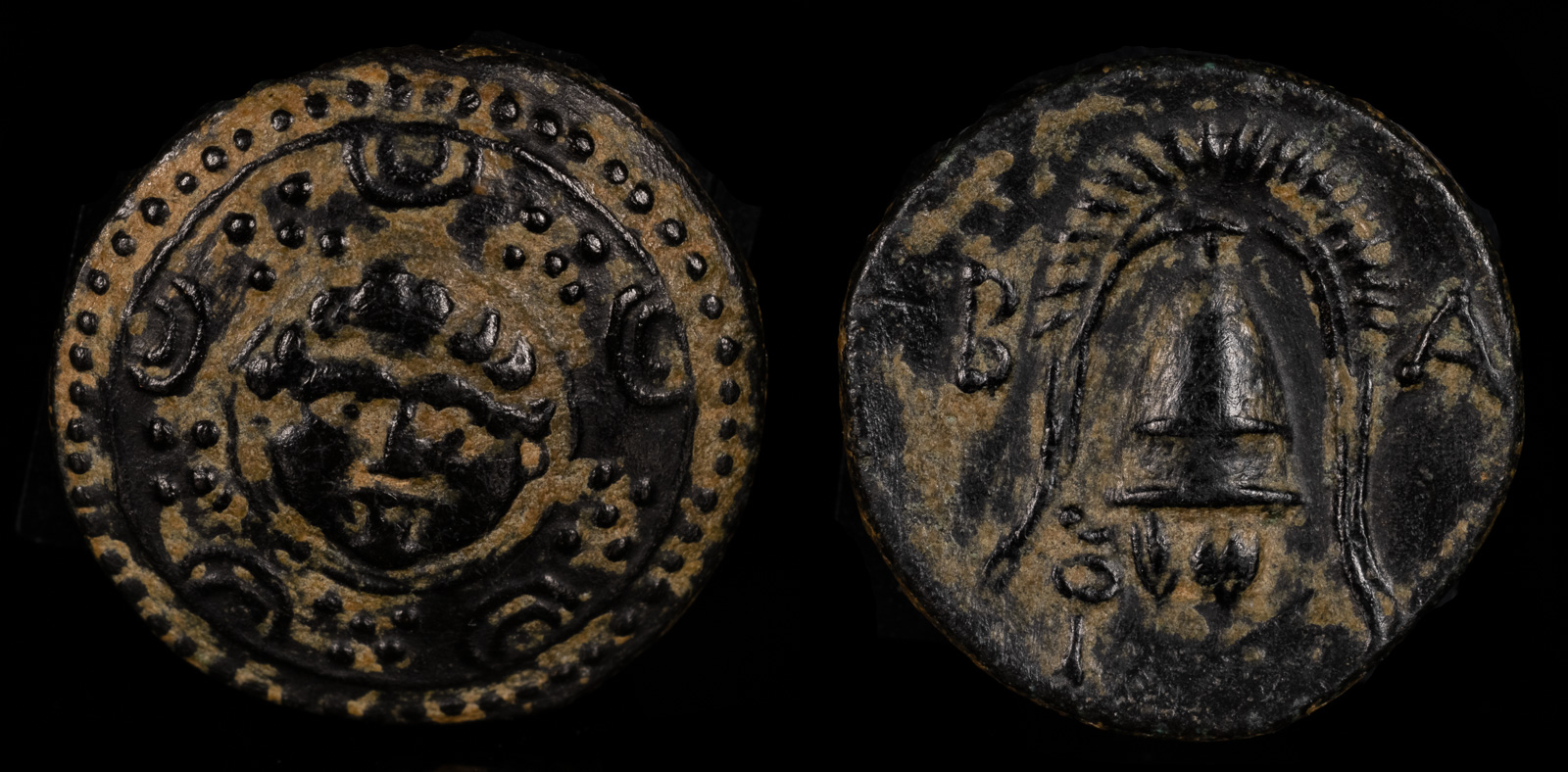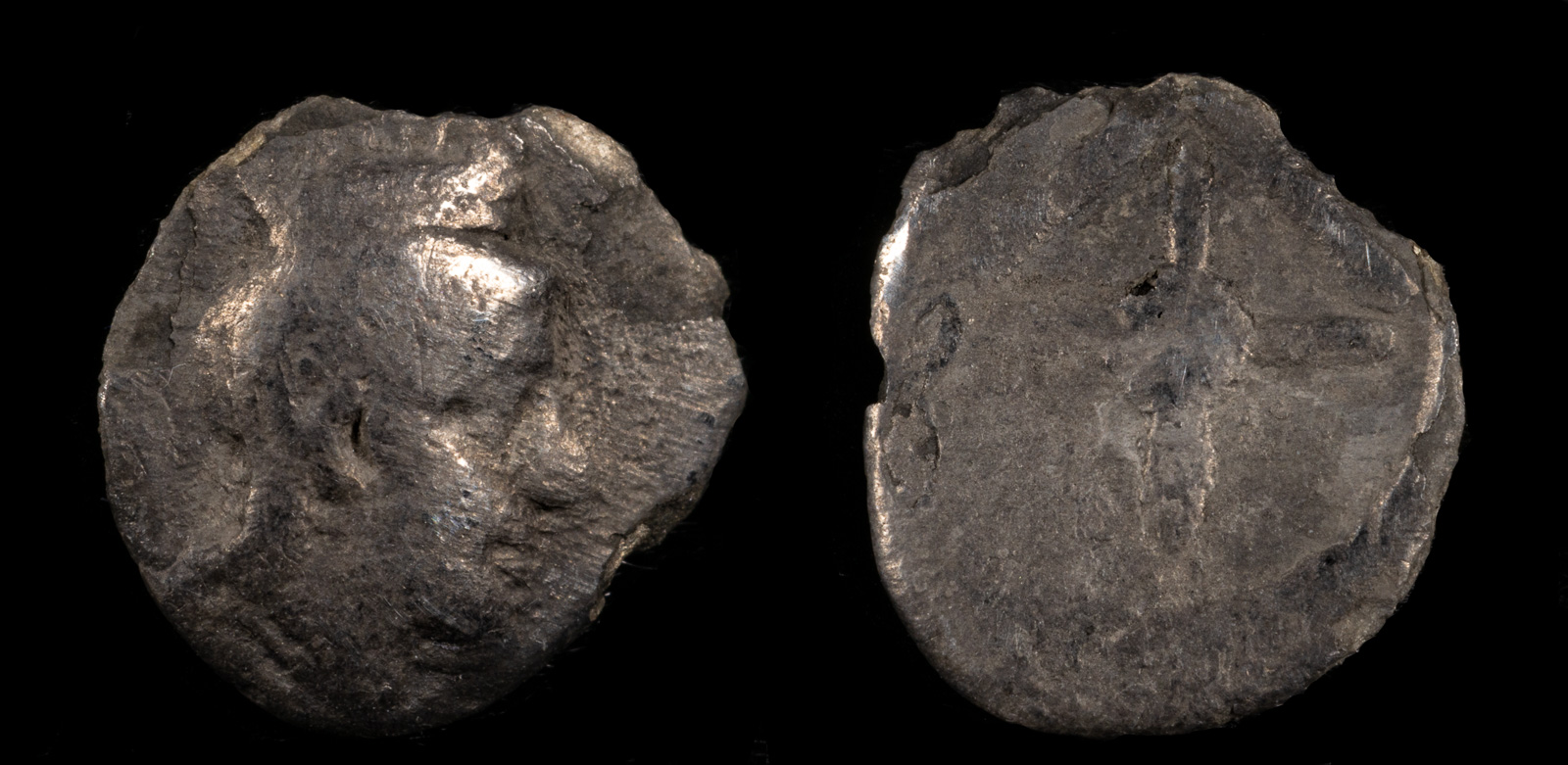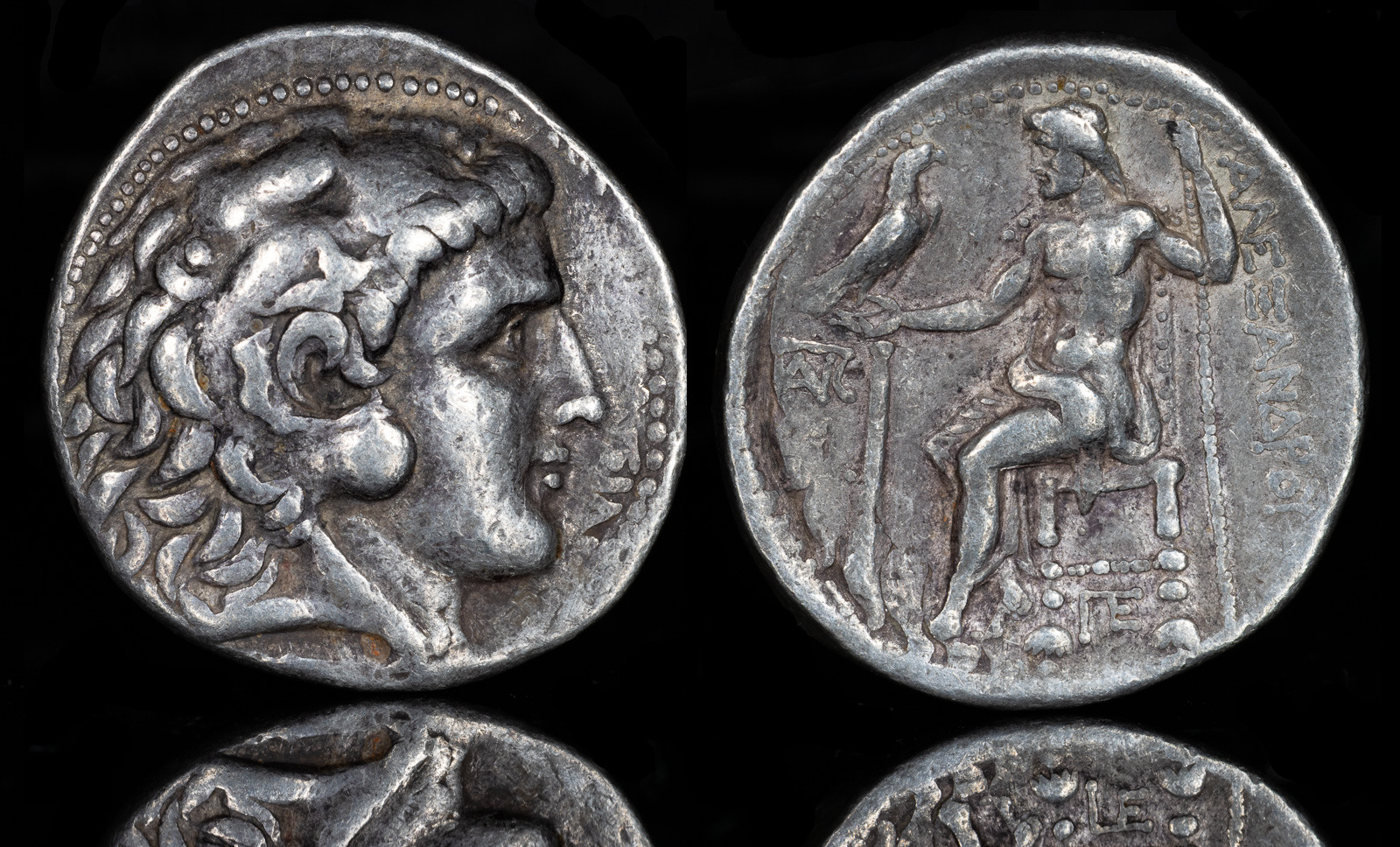
Kings of Macedon, Philip III Arrhidaios (323-317 BC)
AE Half Unit 16mm, 3.25g, 2h
Salamis, under Nikokreon
Macedonian shield, facing gorgoneion on boss. R/ Helmet; kerykeion to lower l.
Price 3158
Salamis was the largest and most powerful city on ancient Cyprus. During the Siege of Tyre in 332 BCE, they joined the side of Alexander, likely because he promised to pardon them from their participating on the Persian side under Autophradates if they helped him take Tyre.
At the time, their king was Pnytagoras, and he personally took part in the siege. He had previously revolted against the Persians from 351 to 344 BCE, but upon his defeat was allowed to keep his throne but as a tributary. Therefore, he likely shed no tears when Alexander defeated the Persians.

Pnytagoras(?)
.20g 7.39mm
Turreted female head right. Monogram
Ref CNG 143, 84
Unfortunately, during the siege the Tyrians sent out their own ships in a surprise attack on the Phoenicians, and it’s believed that Pnytagoras was wounded and not long after died. Nikokreon, who is believed to have been Pnytagoras’ son, became king and traveled to Tyre after Alexander’s victory to pay homage to him.
It’s believed that Nikokreon issued a vast coinage in the names and types of Alexander, though I have seen some debate about this that these types actually belong to somewhere in Asia Minor. However, since all auction houses and sellers continue to attribute these gorgon issues to Nikokreon, I’ll keep my attribution.
In 315 BCE Nikokreon allied with Antigonos I Monophthalmos. Ptolemy’s brother Menelaos then invaded Cyprus and put it under Lagid rule, and we have nothing concerning Nikokreon after that, so presumably he didn’t make it.

Kings of Macedon. Alexander III ‘the Great’
Tetradrachm Silver, 27 mm, 17.11 g, 12 h
Salamis, struck under Menelaus, circa 315-306
Head of Herakles to right, wearing lion skin headdress.
Rev. AΛEΞANΔPOY Zeus seated left on low throne, holding long scepter in his left hand and eagle standing right with closed wings in his right; to left, monogram and rudder; below throne, monogram of ΠE.
Price 3165. Light marks and with traces of overstriking
Salamis itself was, like many of the cities of Cyprus, ancient. Although Homer attributes its founding to the Trojan combatant Teucer, the history of the city predates the Trojan War.
Stasanor, King of Kourion, allies with Onesilos, King of Salamis, against the Persians. Stasanor betrays Onesilos, leading to a Persian victory.
Peace of Kallias, an agreement between Athens and Persia after a series of conflicts between them. In Cyprus, Amathos, Kelenderis, and Salamis remain under Persian control but maintains its local autonomy. Ephesos, Miletos, Priene, Klazomenai, and Phokaia also obtain some autonomy.
Abdemon deposes a Phoenician ruler and becomes King of Salamis.
Evagoras I takes the throne of Salamis from Abdemon.
Nikokles succeeds his father Evagoras I on the throne of Salamis.
Beginning of reign of Pnytagoras in Salamis.
Artaxerxes III recognizes Pnytagoras as king of Salamis in exchange for loyalty.
The major cities in Cyprus – Salamis under Pnytagoras, Kourion, Paphos, and Soloi – rebel against Artaxerxes III Okhos. He sends Idreios along with the Athenian Phokion to quell the rebellion.
Amathos under Androkles, Salamis, and Soloi in Cyprus submit to Alexander the Great after his victory over the Persian Empire at the Battle of Issos. Chios also comes under Macedon.
Androkles of Amathos, Pnytagoras of Salamis, and Pasikrates of Kourion join Alexander the Great at the Siege of Tyre, where their qinqueremes are destroyed.
Nikokreon of Salamis and Pasikrates of Soloi pay homage to Alexander III in Phoenicia and take part in games.
The flagships of Pnytagoras of Salamis, Androkles of Amathos, and Pasikrates of Kourion are destroyed while anchored in the harbor of Tyre.
Pnytagoras of Salamis is given Tamasos, previously the territory of Pumiathon of Kition, by Alexander the Great.
Nikokreon becomes king of Salamis with either the death or removal of Pnytagoras.
Death of Nikokreon of Salamis.
Demetrios Poliorketes captures Cyprus from Ptolemy I Soter and Menelaus – including Salamis, Kourion, Soloi, Paphos, and Amathos.
Amathos, Soloi, and Salamis become part of the Ptolemaic Kingdom of Egypt under Ptolemy I Soter. They are incorporated into the Ptolemaic administrative system, as Cyprus becomes a strategic naval and commercial hub for the Ptolemies.